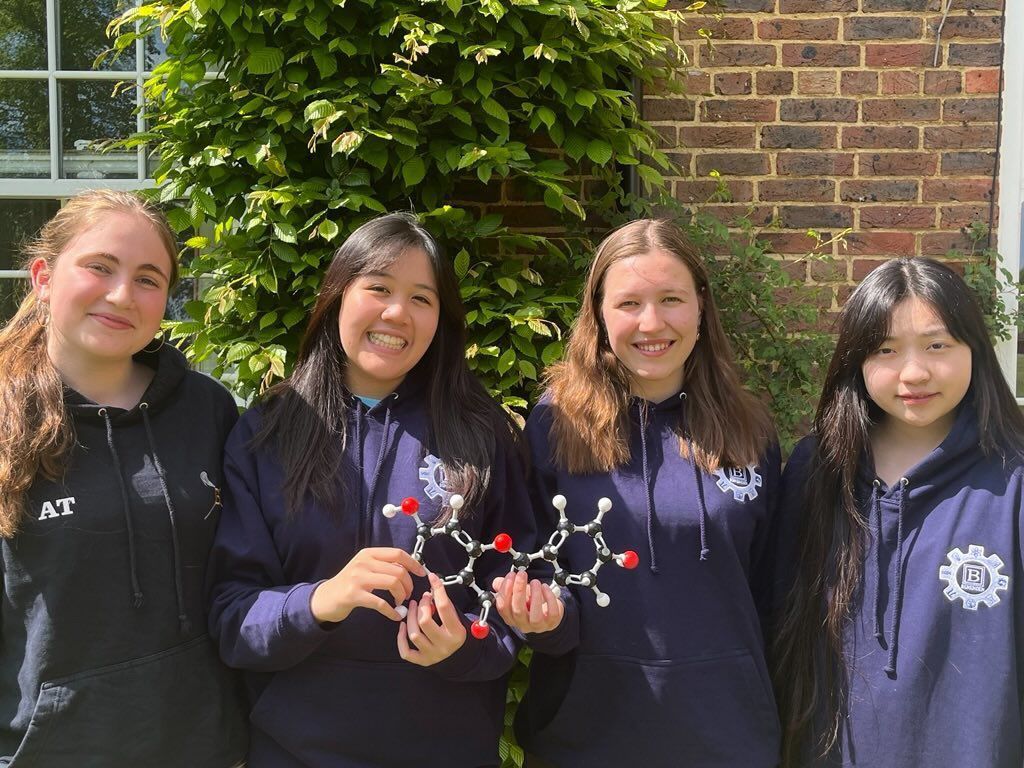FABnoids win Davidson Inventors Challenge 2023
Cambridge – A team of year 11 students from Benenden School in Cranbrook, UK, were crowned winners of our second Davidson Inventors Challenge 2023, an innovation competition for UK schools focused on sustainability.

Team Javelin, The Tiffin Girls' School.
Team Javelin, The Tiffin Girls' School.
The final was incredibly competitive with the judges highly impressed by pitches from all four finalists. The winning team, called FABnoids, are Year 11 students from the Benenden School in Cranbrook. They developed soaps that were made from sustainable flavonoids to help reduce bacterial spreads and thus infections. They were one of four finalists presenting their projects during the online final.
Our Davidson Inventors Challenge was launched in 2020, to encourage 14- to 17-year-old UK students to use Chemical Engineering problem-solving skills to develop an innovative solution that addresses one of the UN Sustainable Development Goals (SDGs).
Sustainable soaps against bacterial spreads
FABnoids chose to focus on SDG three: ‘Good Health and Well-being: to ensure healthy lives and promote well-being for all at all ages”. They recognised that the World Health Organization has declared that bacterial resistance is one of the biggest threats to global help, food security and development. With their flavonoids soap made of plants such as onions, blackberry, dill and more, they have created a sustainable chain of producing soap that doesn’t require harmful chemicals but gets rid of bacteria on the surface of hands thus reducing bacterial spreads of diseases.
Team Sustainors, Leicester Grammar School
Team Sustainors, Leicester Grammar School
Team Muffene, Westminster School
Team Muffene, Westminster School
Faced by strong competition
Team Sustainors from Leicester Grammar School (Year 12) came up with a system that removes microplastics from large bodies of water in a sustainable way; Team Javelin (Year 12) from Tiffin Girls’ School, designed biodegradable contact lenses with full-circle packaging and Team Muffene (Year12) from Westminster School pitched their method for cleaning water through molluscs and graphene oxide.
Praise from the Head of Department and the President of the IChemE
“For me, you are all winners already. Having participated with such brilliant ideas; trying to make a difference.” said Clemens Kaminski, Head of the Department of Chemical Engineering and Biotechnology (CEB) at Cambridge.
The online final, attended by the four finalist teams, as well as students from other participating schools, department members and alumni in the industry, also included talks from the current President of the Institution for Chemical Engineers (IChemE), Nigel Hirst; alumni, Deborah Grubbe and Peter Davidson, son of Professor John Davidson, whom the Davidson Inventors Challenge is named after.
In his closing remarks, the IChemE President, Nigel Hirst, pointed out that there is no better time than now for young people to join Chemical Engineering in any subject.
Clemens Kaminski, Head of Department of Chemical Engineering and Biotechnology.
Clemens Kaminski, Head of Department of Chemical Engineering and Biotechnology.
John Davidson. (credit: Trinity College, Cambridge)
John Davidson. (credit: Trinity College, Cambridge)
John Davidson, former Head of Department
The Davidson Inventors Challenge is aimed at young students interested in STEM and was launched in tribute to our Emeritus Professor, John Davidson, and former Head of Department, who sadly passed away in December 2019. He was known as ‘the founding father of fluidisation’ and worked in chemical engineering since 1952, including in the areas of fluid flow, process dynamics, gas absorption and fluidisation technology. He remained a very active researcher until his death.
He was passionate about his students, interested in their well-being, and enjoyed their questions. He was always committed to the very highest standards of teaching and research and often had simple solutions relying on a profound understanding of the fundamentals.





